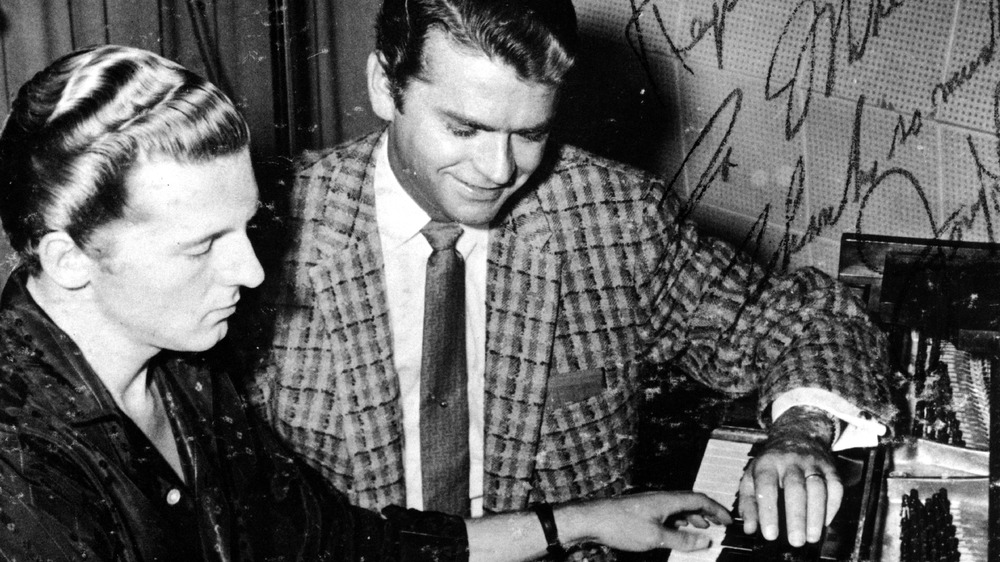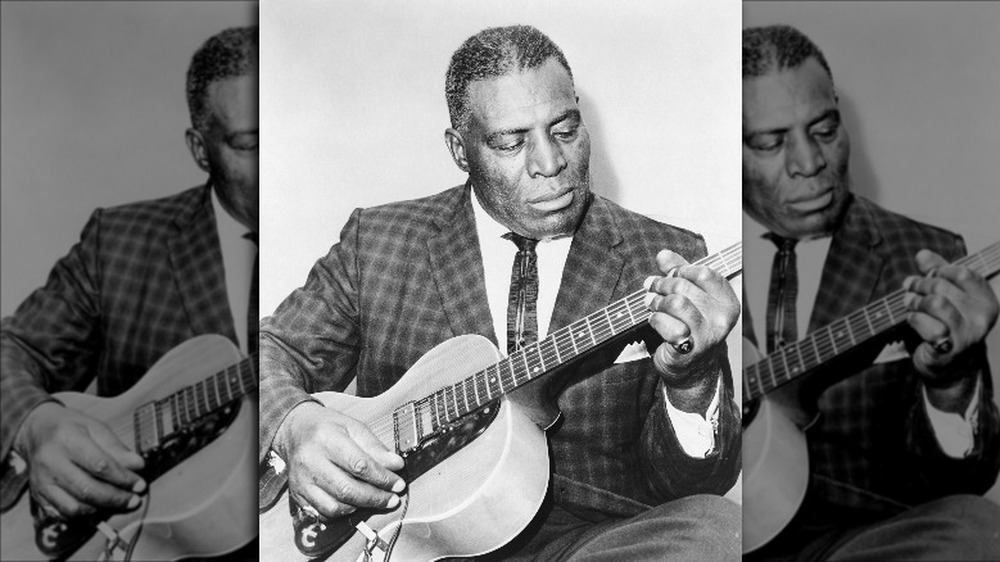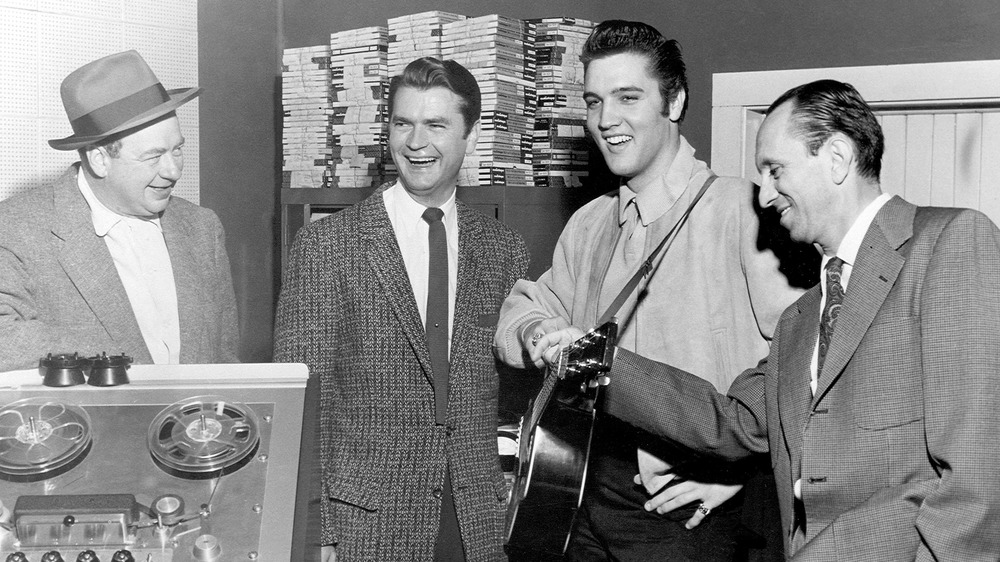Sun Records: The Truth About The Birthplace Of Rock 'N' Roll
It is arguable that no label had ever had as great an impact or more widespread influence as the Memphis-based independent Sun Records. The label was formed by rhythm & blues obsessive Sam Phillips in 1952. In the years immediately following, Phillips and Sun Records became instrumental in what the National Endowment for the Humanities (NEH) describes as "The Birth of Rock 'n' Roll." The NEH highlights the slogan of the label — "We Record Anything-Anywhere-Anytime" — which encapsulated the innovative, anything-goes attitude that was to make Sun Records such a roaring success and would make the label the home to some of the biggest stars of the 20th century.
But this seemingly DIY approach was also the result of necessity. Before opening Sun Records, Phillips was earning his crust with his Memphis Recording Company, which he continued to operate in the early days of the label. "Phillips used portable equipment to record whatever a paying customer wanted as a keepsake," wrote the NEH, with Phillips, by his own admission, recording everything that came his way: "funerals and weddings and school day revues."
However, Phillips got into recording for one reason: to share with the world the music he had grown to love as a child, which, as well as rhythm and blues, included gospel, music the NEH reports Phillips would play while working as a young DJ.
The early days of Sun Records
Sam Phillips was a great believer in serendipity. According to his biographer Peter Guralnick, quoted by the NEH, Phillips "didn't believe in luck necessarily, but the moon had to be in the right place, the wind had to be blowing in the right direction ... He just hoped he would still be in business when that day finally arrived."
The circumstances that Phillips had built around himself for the launch of Sun Records certainly seem today to have been fortuitous; or rather, by following his passions the label owner found himself with the perfect tools at his disposal to make Sun Records so impactful. According to the Sun Records Company website, the mogul "got into the record business specifically to record Black artists." The same source says that with the Memphis Recording Company — one of the first non-segregated recording studios, according to liveabout.com — Phillips pressed records for the likes of such rhythm and blues luminaries as Howlin' Wolf (pictured above) and B.B. King. In pursuit of his dream of bringing their music to a wider audience, Phillips also recorded one of the first hits featuring Ike Turner: "Rocket 88," credited at the time to Jackie Brenston.
But it was perhaps the Memphis Recording Company's willingness to record, for a fee, the music of unknown, aspiring musicians that gave Sun Records the impressive roster that would come to dominate the music charts of the 1950s and beyond.
Elvis Presley and the stars of Sun Records
It was in July 1953, according to Rolling Stone, that a fresh-faced, 18-year-old who had just graduated from a local high school arrived at the Memphis studio and paid to record two songs and have them pressed to vinyl. The cuts were ballads, "My Happiness" and "That's When Your Heartaches Begin," and the teenager — named Elvis Presley, as you've probably guessed by now — paid the sum of $3.98 for the privilege.
But Presley wasn't a star just yet. As Rolling Stone reports, despite the initial approval of the Sun Records receptionist, Marion Keisker, it took a full year for the future King of Rock 'n' Roll to catch the attention of Phillips (second left), who directed the crooner-loving singer's energies into rock 'n' roll, putting out Elvis' first hit single "That's Alright (Mama)." "Presley's explosion into the mainstream gave Sun all the boost it would ever need," claims liveabout.com. In his wake followed a series of hit artists who would come to create some of the greatest rock music of all time.
Many other singers such as Sonny Burgess, Charlie Rich, Junior Parker, and Billy Lee Riley recorded with Sun Records. Some others like Jerry Lee Lewis, B.B. King, Johnny Cash, Roy Orbison, and Carl Perkins would later become superstars. Sam Phillips, reportedly facing financial challenges, was forced to sell Elvis' recording contract to RCA in 1955, according to Investors Business Daily. However, Sun Records, the label he founded, still exists today.


